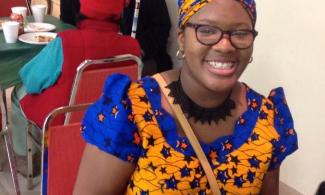
I am not told stories of conquest by Africans. I am not reminded of the beauty of Maya Angelou’s words, the marvelous tremble in Miriam Makeba’s vocals, and the plight of Nelson Mandela under the crushing presence of apartheid. At most, we speak about Martin Luther King Jr., though the conversation rarely reaches farther than his “I Have a Dream” speech. It is difficult to feel valued as a Black teenager in our society; however this struggle multiplies when you are part of the second generation of Africans in the Diaspora. There is a great effort among us to maintain our heritage. Being a second-generation immigrant, it is hard to avoid the unintentional process of assimilation. There is no one telling me to “lose my heritage” but as a second-generation immigrant from Nigeria, I struggle to maintain my Nigerian roots whilst echoing the “Canadian-ness”’ of my surroundings.

I am Black. It is an irrevocable truth, an unavoidable fact. This reality cannot be shut out or ignored–it welcomes me every morning in the mirror. It is hidden in the awkward silence after a racist joke or the falter in my smile when I am told that I act “so white”. During the month of February, I am even more reminded of the omnipresence of my skin color. However, Black History Month is usually forgotten by some of my peers.
Beyond the occasional “Why is there even a Black History Month?” or complete lack of knowledge of its existence, many youth of color disregard the importance of the annual observance. This is compounded by the fact that we don’t often talk about Black History Month in the same light as other historical observances. Many high school students could recall the cause of World War I or the significance of Canadian Confederation in our present society, but when asked about the significance of Black History Month, they stutter. It is not out of a lack of eloquence or passion. I am often reminded of this when I am in the presence of my Black friends. We are not silent or passive.
In pop-culture, teenagers are viewed as sluggish, dumb, and impulsive. This stereotype acts as a disservice to some of us, because we are just as passionate as adults. We discuss real issues that matter. I have talked about #BringBackOurGirls, Ferguson, Selma, slavery, colonialism, and Black culture appropriation with my friends—of any color. The media reminds me that the fight for equality is not won yet through social media movements such as #BlackLivesMatter and other hashtags. Why then should we have Black History Month, and why is it important to my generation? In our classrooms we are taught about the intellectual heritage of Canadians, Americans, and Europeans. And Black youth notice that. There is no section in my textbook that tells me about the advancements of my people, which educates me on what we have contributed to society. The most we learn about black people is slavery and the Underground Railroad.
I am not told stories of conquest by Africans. I am not reminded of the beauty of Maya Angelou’s words, the marvelous tremble in Miriam Makeba’s vocals, and the plight of Nelson Mandela under the crushing presence of apartheid. At most, we speak about Martin Luther King Jr., though the conversation rarely reaches farther than his “I Have a Dream” speech. It is difficult to feel valued as a Black teenager in our society; however this struggle multiplies when you are part of the second generation of Africans in the Diaspora. There is a great effort among us to maintain our heritage. Being a second-generation immigrant, it is hard to avoid the unintentional process of assimilation. There is no one telling me to “lose my heritage” but as a second-generation immigrant from Nigeria, I struggle to maintain my Nigerian roots whilst echoing the “Canadian-ness”’ of my surroundings.
Black History Month is important for all races because it notes the fact that there is so much more to the world that what is taught in our classrooms. Black History Month points out that there are gaps in the history being taught to us. It is missing the culture and history the Chinese, Arabs, Africans in Canada. Many schools (including mine) have a Black History Month Club or an annual show. This is so important because it allows students to learn about Black History firsthand. I applaud the schools, teachers, or educators that make learning about Black History important to their students.
Black History Month is important because it reminds Black youth of their presence and essence. It offers solace in a world that asks us to fit into its expectations. Youth of all races must know that Black History does not end with the slave trade and civil rights. It encompasses the contributions by Blacks to: history and civilization, the arts, technology and the sciences, industry and world trade, and religion and philosophy. Black History Month tells me that there is so much more to learn beyond my horizons, and I want to share that with my friends. But most importantly, Black History Month reminds me of my heritage; it reminds me that I matter and that my voice deserves to be heard.
My name is Kika Otiono and I am a lover of books, rock music, fantasy movies, and anything involving social justice. I am an 11th grade student, with the dream of becoming a neuro-scientist as well as an activist for children’s rights. I can be reached at [email protected].